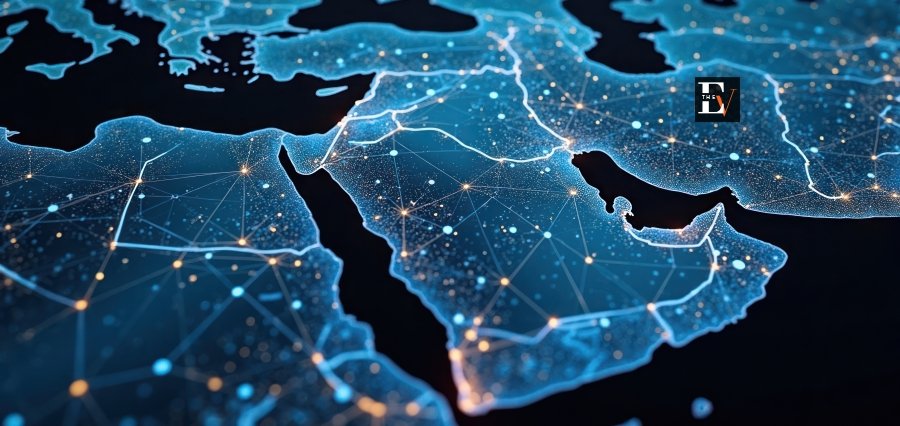Shaping the Region’s Future
The moment we think about the Middle East, the first thing that comes to mind is the huge land of deserts and dates. But the Middle East is way more than what we think and know about it. Leadership of the Middle East has long been known to define the identity, policies, and direction of the region. Being rich in history, cultural depth, and strategic importance, the Middle East remains the place where the decisions made by leaders have far-reaching implications. From political reforms to economic strategies, the impact of leadership is on layers of society, it affects millions of lives, and shapes the national agenda.
Strategic Governance and Policy Direction
Governance in the Middle Eastern region is always at the centre of attention by the whole world because of its complexity and relevance. Leaders in the region have to strike a balance between tradition and progressive ideas for running a country. Policy direction when it comes to infrastructure, healthcare or international relations usually depends on long-term views prompted by brave judgments. The outcome is a style of governance characterized by stability in addition to a vision for improving national standings and the quality of life of citizens.
In many Middle Eastern countries, the leadership has taken a proactive role in developing national strategies. Such plans quite often address economic diversification, better public services, and national security. The impact of such strategies can be seen in the region’s effort towards development and rise in self-sufficiency. Leadership sets the tone for what the future might have with deliberate planning and strong execution.
Economic Reforms and Development Initiatives
Over the years, the economic agendas of Middle East leaders have changed as the focus has been on detaching the region from a great dependence on natural resources. As a way of achieving this, many countries have taken developmental efforts to support other industries such as tourism, technology, and energy from renewable sources. They do not only involve capital, but also the vision and readiness for adopting new models of growth.
In many cases, the effectiveness of such reforms depends on the capacity of leadership to make the required change in the areas. Through stimulating investment and development of small businesses as well as building on the foundation of education systems, the leaders help to make the economies more robust. The ultimate success of such policies relies very much on the continuous use of thoughtful, people-centered leadership.
Societal Progress and Cultural Balance
The leadership in the Middle East has one of its predominant roles, which is to steer societal advancements without forgetting the cultural roots. The area is rich in various traditions and values that define a collective identity. Leadership that appreciates and comprehends this balance is most likely to elicit more public trust and involvement.
The work towards the augmentation of such aspects as gender inclusion, education and public health can be seen in different countries of the region. These changes do not come in without difficulties, but inspired leadership overcomes resistance and gains consensus for reform. It is through societal transformation that is grounded on respect and inclusivity that turns out to be sustainable in the long run.
Diplomacy and Global Positioning
The geopolitically relevant Middle East is such that the leaders here not only affect local concerns but also international relations as well. Leaders are required to deal with alliances, trade agreements, and diplomacy in a calculated way. Whether it is at the global summits or in peace talks, the leaders of the region have a visible presence on the world stage.
This worldwide positioning is improved through clear policies by leaders, stable governance and demonstration of interest in dialogue from the leaders. When there are conflicts or uncertainty, leadership becomes a torch to stability and direction. Deep diplomatic involvement can help open new avenues and make sure to have a say in determining regional and global agendas.
Youth Engagement and Future Leadership
The Middle East has one of the youngest populations across the globe, and hence inclusion of youth is one of the biggest priorities. The inclusion of young people in creating policies and future visions as a form of leadership towards a more inclusive society takes place. Education, job opportunities, and spaces for innovation help the youth participate in nation-building.
Programs that nurture entrepreneurship, creativity and civic engagement can open up the potential of the youth of the region. This, in turn, creates a generation which is ready to lead with a sense of awareness, responsibility and vision. Good leadership appreciates the importance of preparing today’s youth for tomorrow’s positions.
Leadership as a Cornerstone of Progress
Leadership in the Middle East keeps on influencing direction of the region in various domains of governance, economy, society, and diplomacy. Effort in giving priority to stability, strategic planning and inclusive progress is what makes leadership facilitate both short and long term success. The actual effect is not only in the top decisions that are made, but the good ripple effects through the communities and generations to come.
The future is going to depend on the strength and clarity of leadership that knows that it is not only accountable to its citizens but also to the region and the general global society they belong to.





